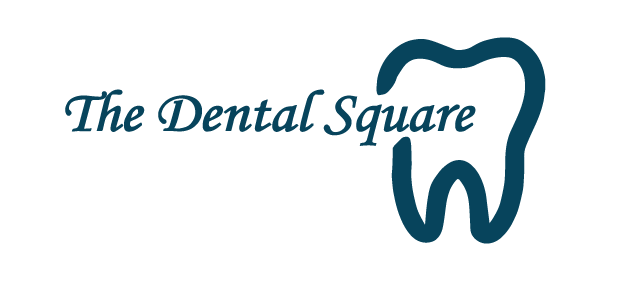Services
What services do we provide for you?
We want to ensure that your visit to the dentist is as pleasurable as possible. The Dental Square Multispecialty Dental Clinic uses the most advanced and proven technology to help you maintain that beautiful smile! Our dental technology allows for faster, less invasive treatment to guarantee your next visit is an enjoyable one.
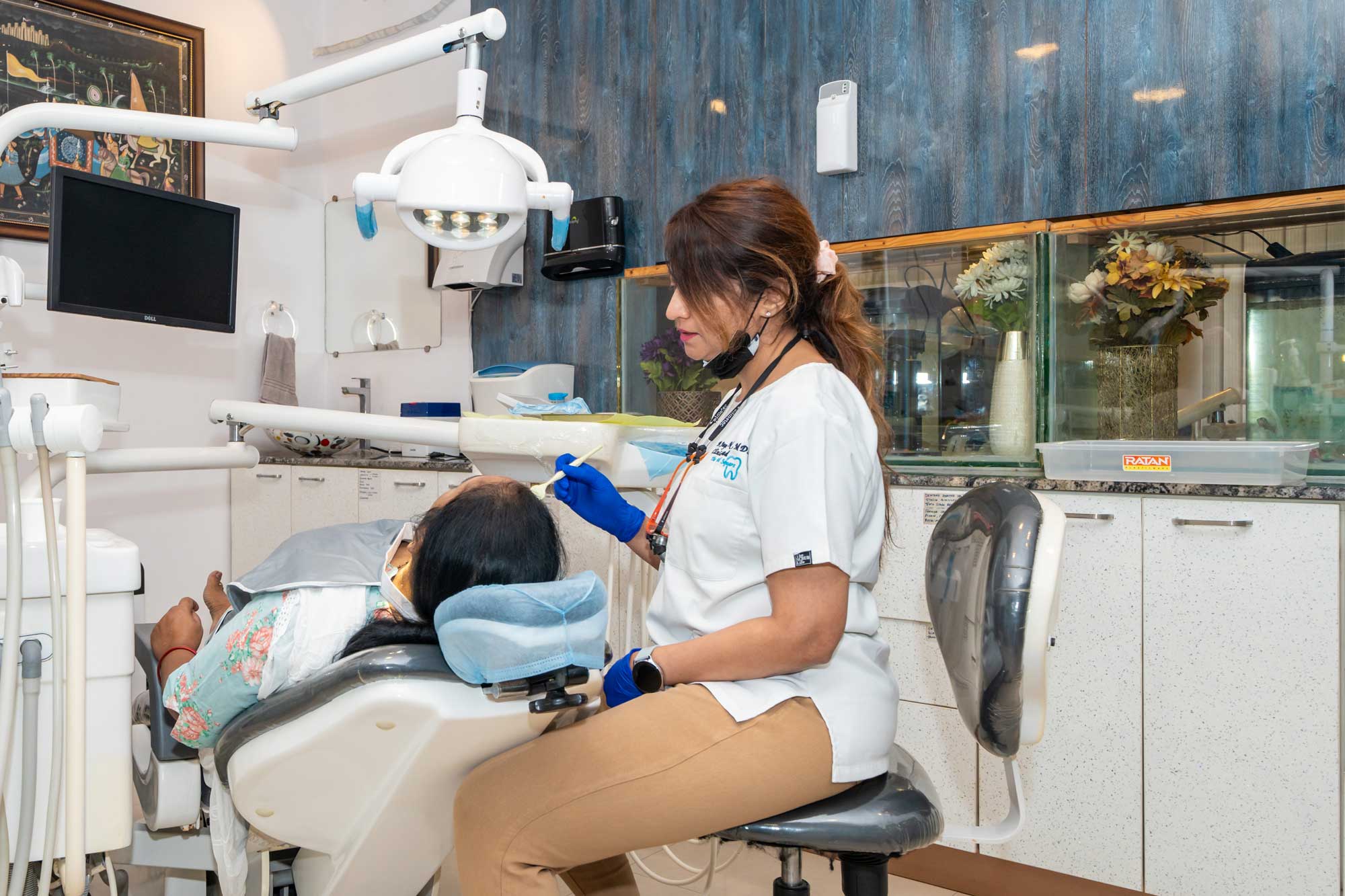
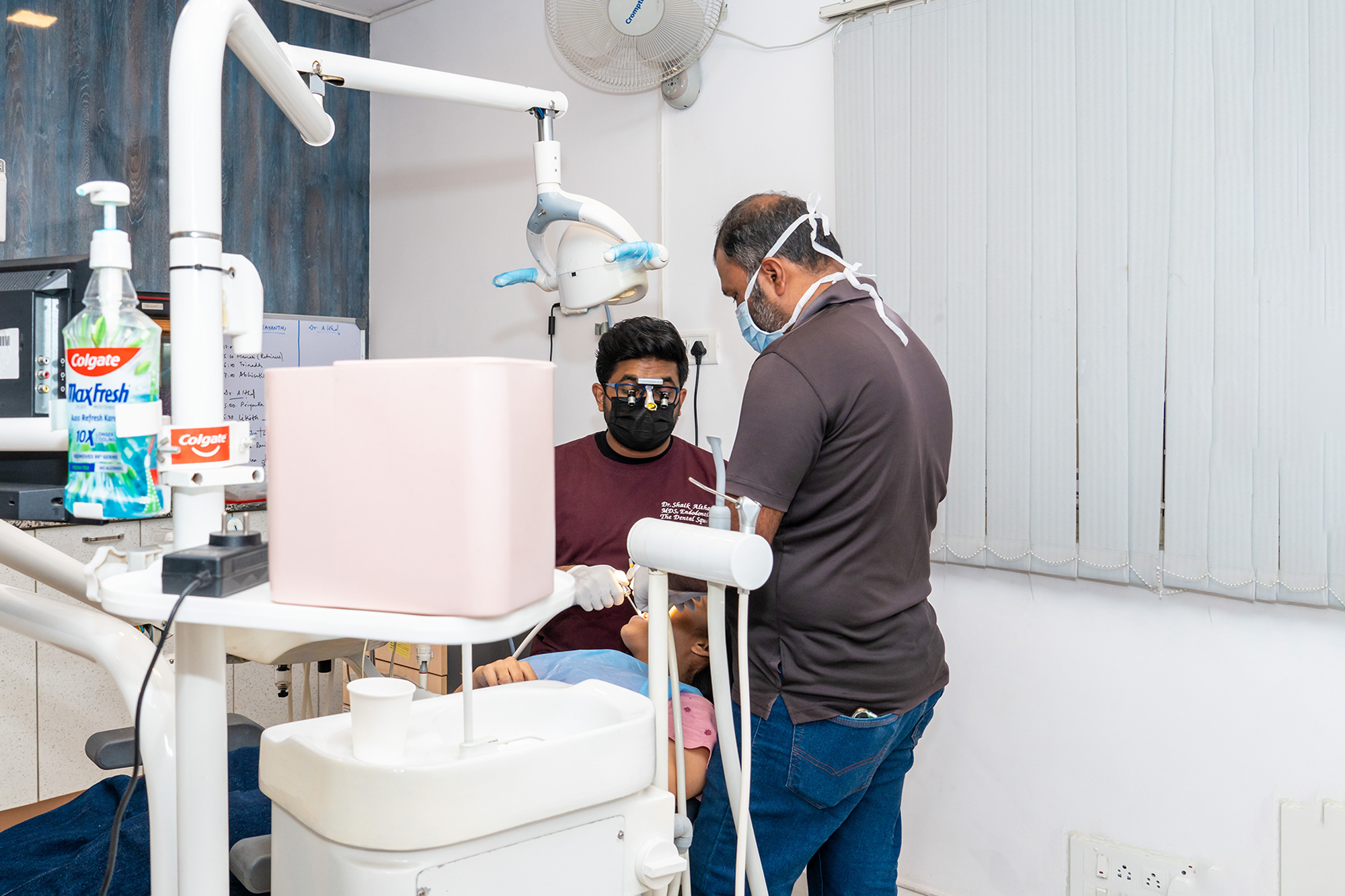
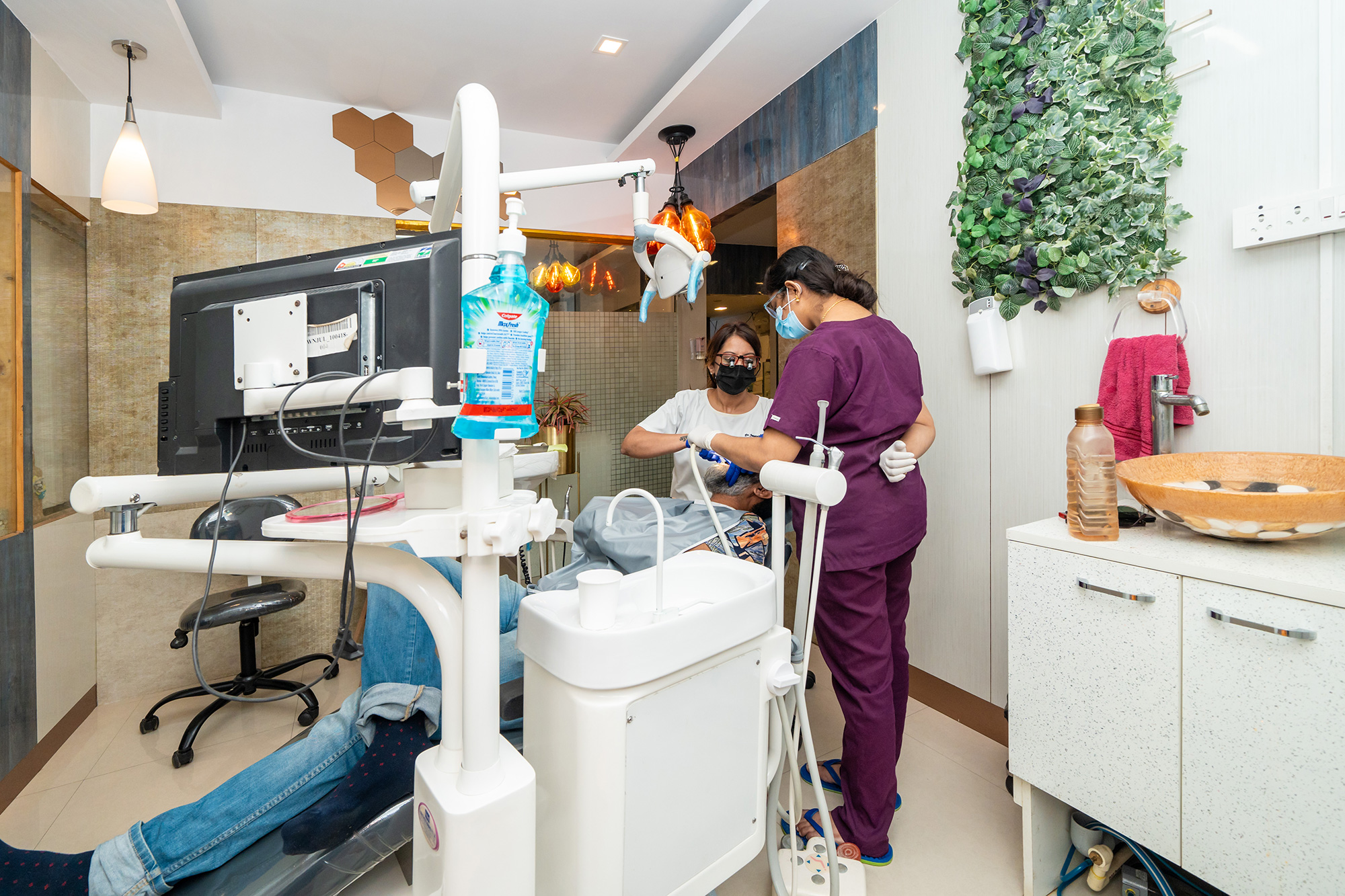
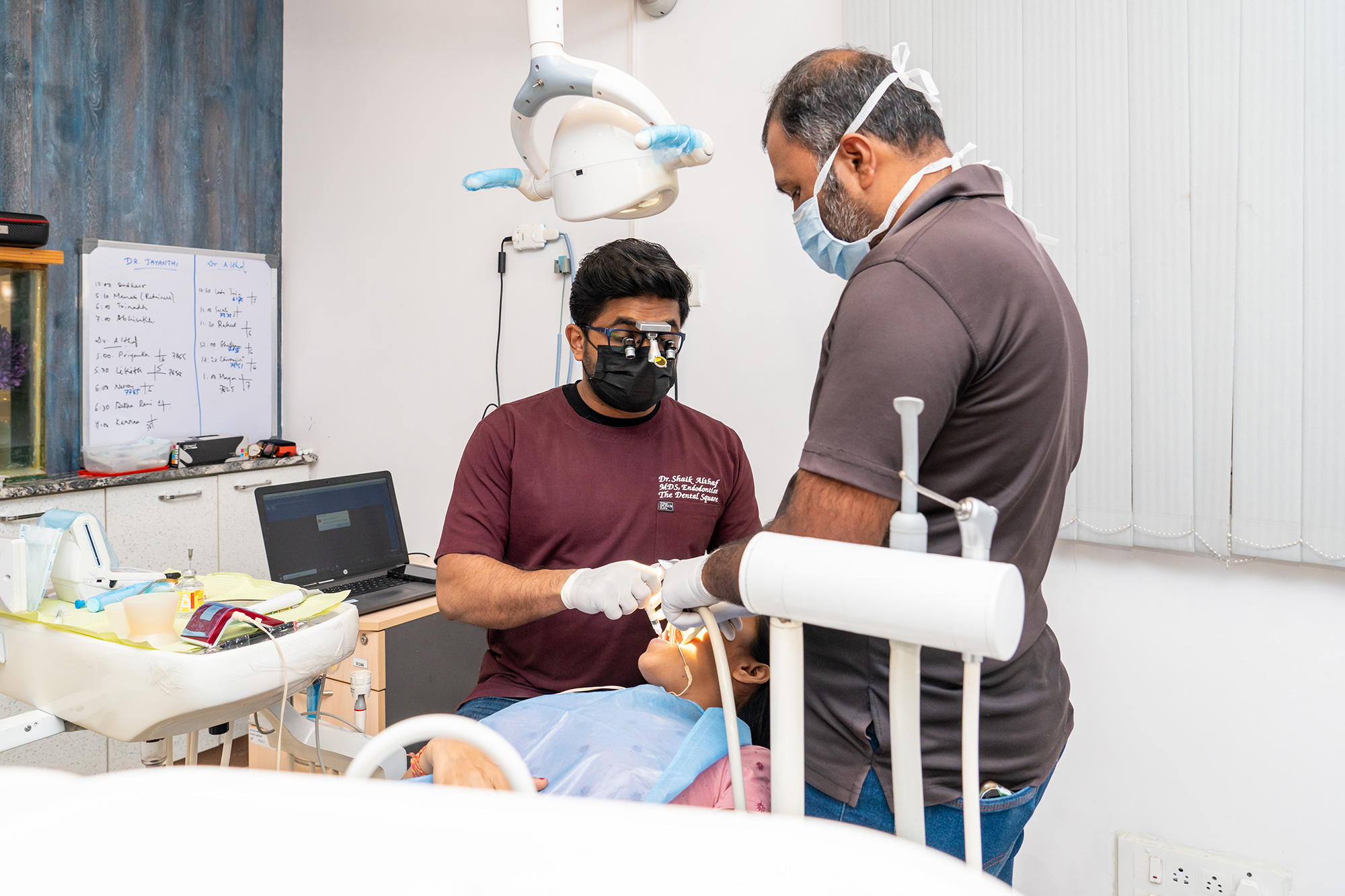

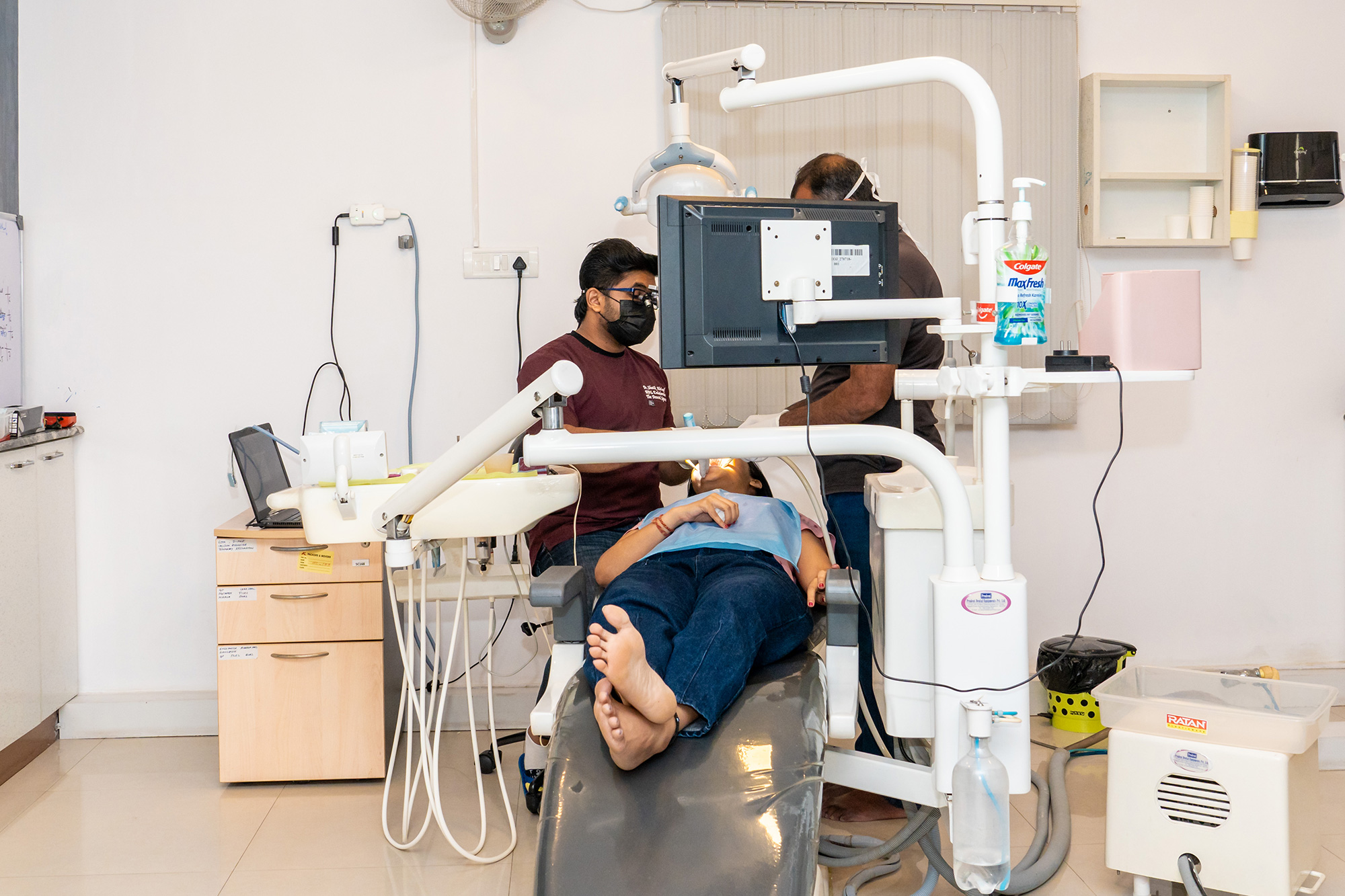
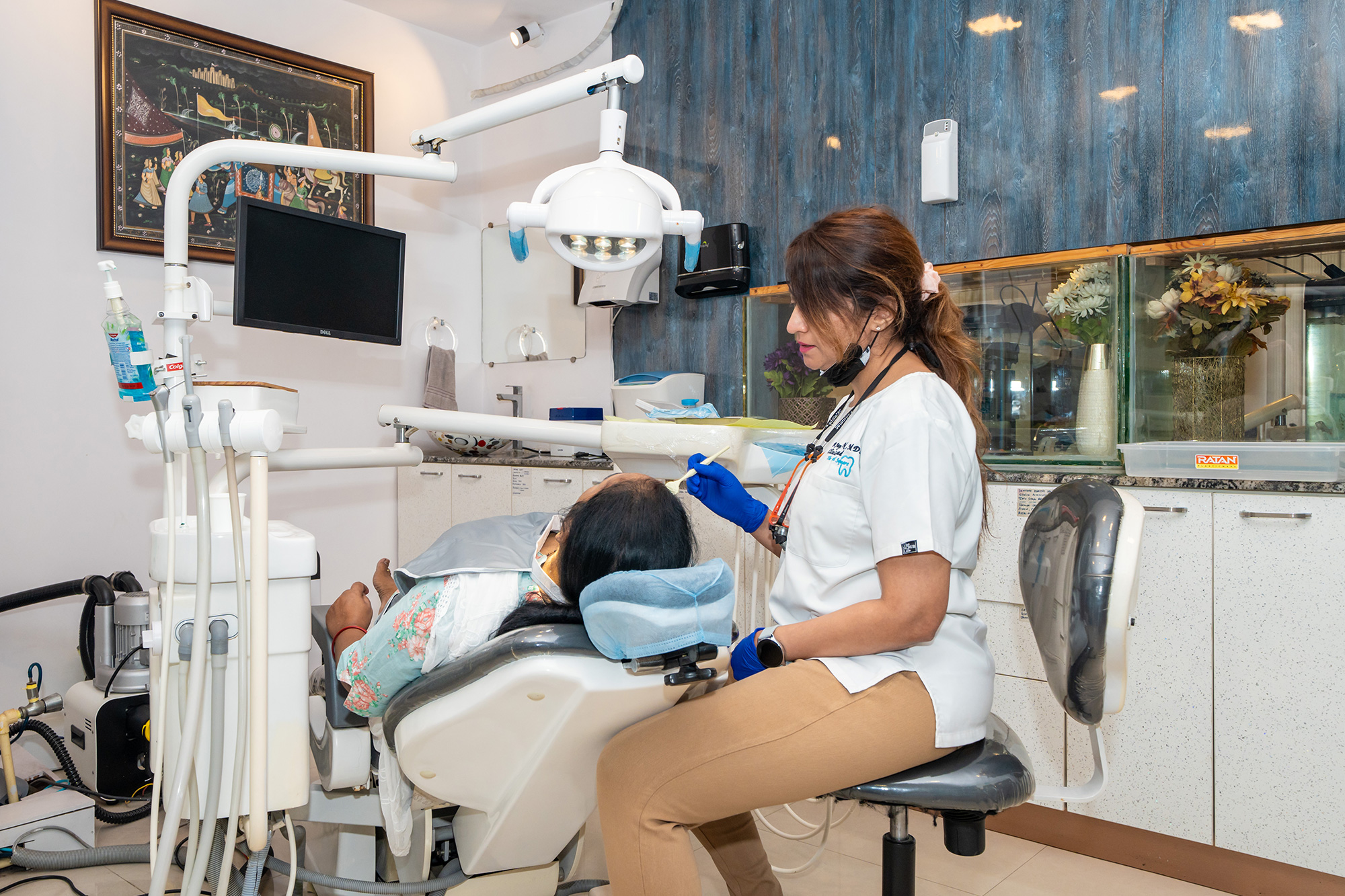
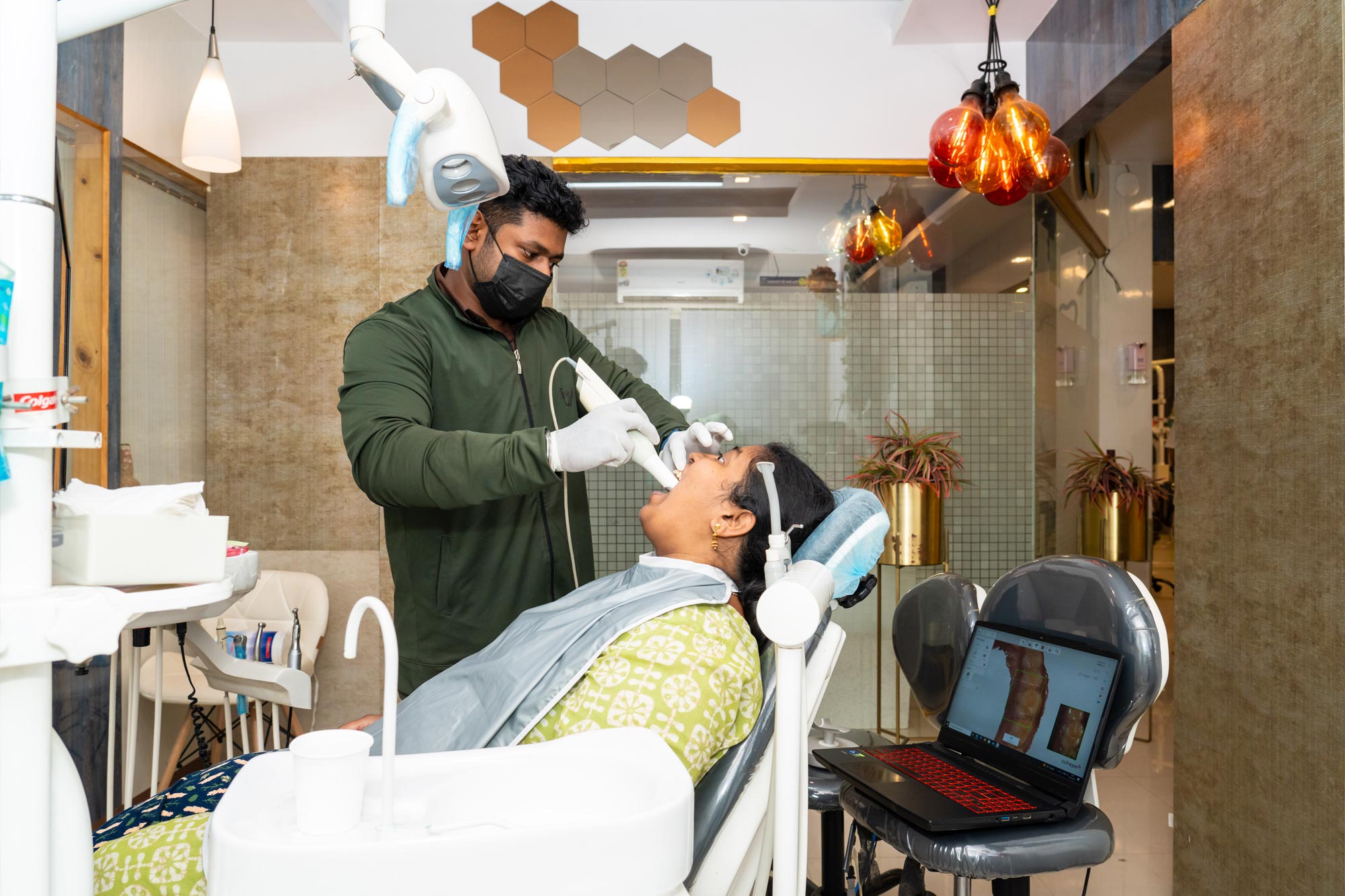
General Dentistry
Our clinic provides a variety of routine examination procedures for patients concerned about their oral health. When you visit us for the first time, we will take the necessary radiographs and do any preliminary tests needed in order to assess your dental health and diagnose any treatment you may need.
- Examination with Intra Oral Camera & diagnostic x-rays.
- Gum Disease Evaluation.
- Tooth Decay Examination.
- Existing Restoration Examination.
- Regular Cleanings.
- Deep Cleaning.
- Root Canals.
- Fluoride Treatment.
- Topical Fluoride.
- Systemic Fluoride.
Trusted by More than 1000+ Customers
Trusted by More than 1000+ Customers
Restorative Dentistry
No matter how hard you work to keep your teeth healthy and clean, things can still go wrong. The sector of restorative dental care works to repair your teeth after accidents, illness and tooth loss.
This type of dentistry covers all aspects of tooth repair and replacement. Restorative dental helps with both functionality, making it easier to eat, chew and swallow, as well as appearance. So you can smile without hesitation.
Types of Restorative Dental Procedures :
- Fillings.
- Dentures.
- Dental Implants.
- Fixed Bridges.
- Crowns.
Cosmetic Dentistry
At The Dental Square Multispecialty Dental Clinic we offer several cosmetic dentistry services. These include Veneers, Dental Bonding and Whitening. Cosmetic dentistry focuses on improving the appearance of your teeth, gums, and smile.
Cosmetic dentistry procedures mainly focus on improving the overall look of your smile. They can have a dramatic affect on your overall appearance as well. The goal in all cosmetic dentistry procedures is to see our patients smile with confidence!
Types of Cosmetic Dentistry Procedures :
- Veneers.
- Dental Bonding.
- Tooth Whitening.
Trusted by More than 1000+ Customers
Trusted by More than 1000+ Customers
Orthodontic Dentistry
Whether you are getting braces for the first time, or you are looking into Invisalign, our dentists would be happy to help with your procedure. We specialize in orthodontics at The Dental Square Multispecialty Dental Clinic. We have provided quality orthodontic treatment for several years.
Orthodontics not only improve the physical appearance of your smile, but it can also improve the functionality of your bite. Our team of professionals is committed to creating your perfect smile and the first step is with orthodontics.
Types of Orthodontic Dentistry Procedures :
- Braces.
- Aligners.
Pediatric Dentistry
Pediatric dentists are dedicated to the oral health of children from infancy through the teen years. They have the experience and qualifications to care for a child’s teeth, gums, and mouth throughout the various stages of childhood.
Children begin to get their baby teeth during the first 6 months of life. By age 6 or 7 years, they start to lose their first set of teeth, which eventually are replaced by secondary, permanent teeth. Without proper dental care, children face possible oral decay and disease that can cause a lifetime of pain and complications. Today, early childhood dental caries—an infectious disease—is 5 times more common in children than asthma and 7 times more common than hay fever..
Pediatric dentists provide comprehensive oral health care that includes :
Infant oral health exams, which include risk assessment for caries in mother and child. Preventive dental care including cleaning and fluoride treatments. Repair of tooth cavities or defects.
Trusted by More than 1000+ Customers
Trusted by More than 1000+ Customers
Oral Surgery
Oral surgery is a sector of dental procedures that focus entirely on the more intense, surgical aspects of dentistry. At The Dental Square Multispecialty Dental Clinic we perform gum surgery, wisdom tooth extractions and bone grafting, in our oral surgery department. However, the term oral surgery can be used to encompass any kind of dental surgery. We use oral surgery to treat a variety of diseases as well as orthodontic and oral problems. Patients may need oral surgery in conjunction with other procedures such as dental implants or veneers. Oral surgery can be reconstructive, orthodontic or cosmetic. It is a large area of dentistry that can be used to assist in many different situations.
Types of Oral Surgery Procedures :
- Gum Surgery.
- Wisdom Tooth Extraction.
- Bone Grafting.
Implant Dentistry
Dental implant surgery is a procedure that replaces tooth roots with metal, screwlike posts and replaces damaged or missing teeth with artificial teeth that look and function much like real ones. Dental implant surgery can offer a welcome alternative to dentures or bridgework that doesn’t fit well and can offer an option when a lack of natural teeth roots don’t allow building denture or bridgework tooth replacements.
If you choose to replace missing teeth, your dentist may recommend artificial teeth that are attached in or near the jawbone with a dental implant.
Types of Dental Implant :
- Endosteal (in the bone).
- Sub-periosteal (on the bone).
Trusted by More than 1000+ Customers
Trusted by More than 1000+ Customers
Endodontics
Highly trained endodontists (dental specialists) repair tissues inside your tooth. They diagnose and treat complex causes of tooth pain, such as tooth abscesses (infection). Endodontists perform root canal treatments and other procedures to relieve pain. They work to save your natural tooth.
Endodontists specialize in diagnosing and treating complex causes of tooth pain. They work to relieve the pain while preserving your natural tooth. Endodontists are skilled at saving teeth — even severely damaged or decayed teeth.
Endodontics Testing Procedures :
- Dental X-Rays.
- Hot or cold swabs.
- Tapping on teeth.
Most Asked Questions
The Dental Square – Multispecialty Dental Clinic
Many people come to my office saying “I need a deep cleaning” but most people don’t understand what this really means. Here is a brief description of the diseases of the gums and bone in your mouth and ways to prevent them.
As mentioned above, gingivitis is easily treated with a professional cleaning and better home care of the patients. However, if you already have some pockets around your teeth, you will need a deep cleaning (root planning). This involves scraping the diseased tooth structure and bacteria from the root surfaces under the gums to help decrease the pockets around your teeth.
Periodontal Disease is a silent disease and can slowly erode the bone and supporting structures of the mouth without any noticeable signs to the patient. If you wait too long, the teeth will actually become loose and by then, it is usually too late to reverse the process.
Many people wonder if cosmetic dentistry is right for them. Generally, with cosmetic dentistry, there is nothing specifically wrong with your mouth in the practical sense. You have a good bite, you may have had orthodontic work in the past, and now you simply want to improve the appearance of your teeth themselves. Cosmetic dentistry can make a huge difference in your looks.
Many people seek cosmetic dentistry procedures as adults, whether it is to have a more aesthetic smile, get ahead at work or simply feel better about their smile.
The average set of veneers will last a patient 10-15 years in good condition. Veneers can last up to 20+ years, depending on different factors. If the veneer is bonded directly to the tooth enamel, the bond will be stronger and last longer.
Depending on your age, you may never have to have your veneers replaced in your lifetime. If you are younger, as with all dental work, you may have to have your veneers replaced once or twice.
Your dentist will set up an individualized treatment plan for your specific case, to maximize the longevity of your veneers. Your bite can affect how long your veneers will last and your dentist may recommend a mouth guard at night if you are prone to grinding your teeth.
It is very important to protect your teeth from certain pressures such as clenching or grinding, or even biting into hard substances when you have veneers.
Whichever procedure you receive, there are a few basic things you should avoid eating immediately after. You do not have to restrict your eating after your surgery, however you will not be able to chew or eat the foods that you normally do. You should leave around a week of healing time before you try to eat solid foods again. Your dentist may ask that you avoid solid foods until your stitches are removed.
Some meal ideas after oral surgery include:
- Frozen yogurt (to reduce swelling).
- Yogurt.
- Smoothies.
- Broth or pureed soup.
- Fresh Juice.
- Applesauce.
- Pudding.
Good oral hygiene removes bacteria and the left over food particles that combine to create cavities. For infants, use a wet gauze or clean washcloth to wipe the plaque from teeth and gums. Avoid putting your child to bed with a bottle filled with anything other than water. For older children, brush their teeth at least twice a day. Also, watch the number of snacks containing sugar that you give your children.
Dental bridges fall into a category of dental procedures called “restorative dentistry.”
This type of dental practice is closely related to cosmetic dentistry. It focuses mainly on repairing a person’s smile, after injury, illness or trauma. Restorative dental care incorporates orthodontics to perfectly fit new teeth to your bite.
This is a common question we get. Do you go with traditional metal braces or the new, sleek invisible aligners, Invisalign? Both are proven and equally effective methods of aligning teeth. Sometimes patients actually choose to use both methods! Invisalign is far less visible than braces and it can be removed daily. Braces can be both clear or colored.
Invisalign is a new and effective way to align teeth. The key benefit to Invisalign is in its name, the product is relatively invisible against your teeth, unlike braces. Invisalign is popular with adults who want to subtly align teeth without wearing braces. Invisalign is also helpful for those who has braces in the past, as children, and have noticed their teeth moving slowly out of alignment again.
Braces have an extensive history of effectiveness and come in many different colors and styles. You can now get clear braces for a more subtle appearance. Braces are often needed for correcting an overcrowded smile, where teeth are too distorted for the trays of Invisalign. Braces are also needed for correcting an open bite, where Invisalign would be less effective in certain cases.
Your choice between braces or Invisalign rests upon many factors. They mainly involve your specific dental needs. Some patients use a mixture of the two. For example an open bite may initially require braces, but over time as the teeth align, the patient can switch to Invisalign for maintenance.
